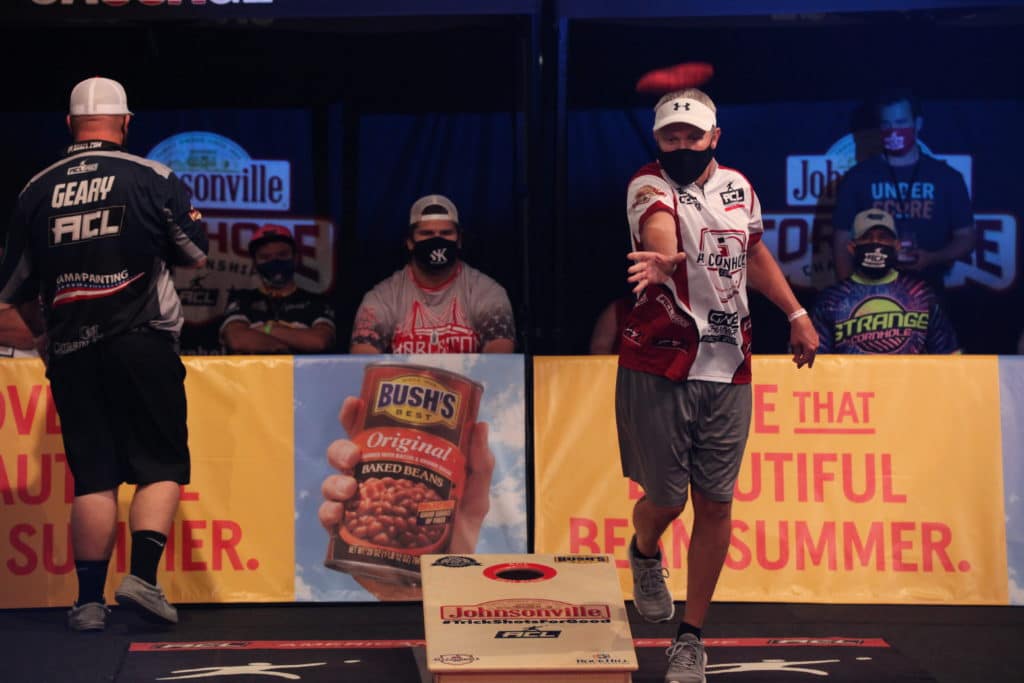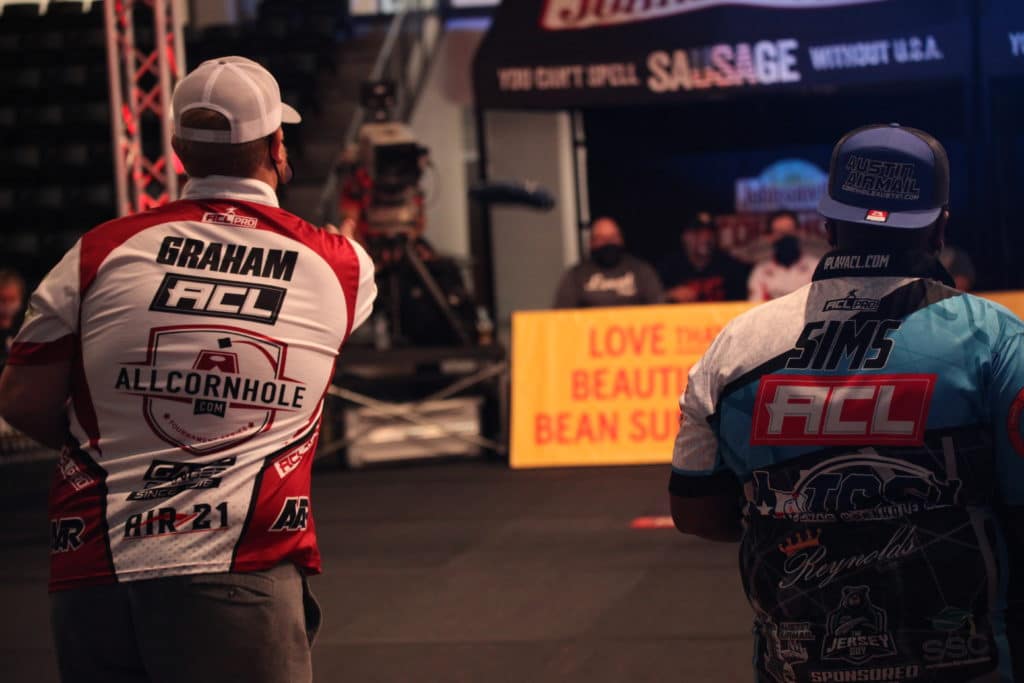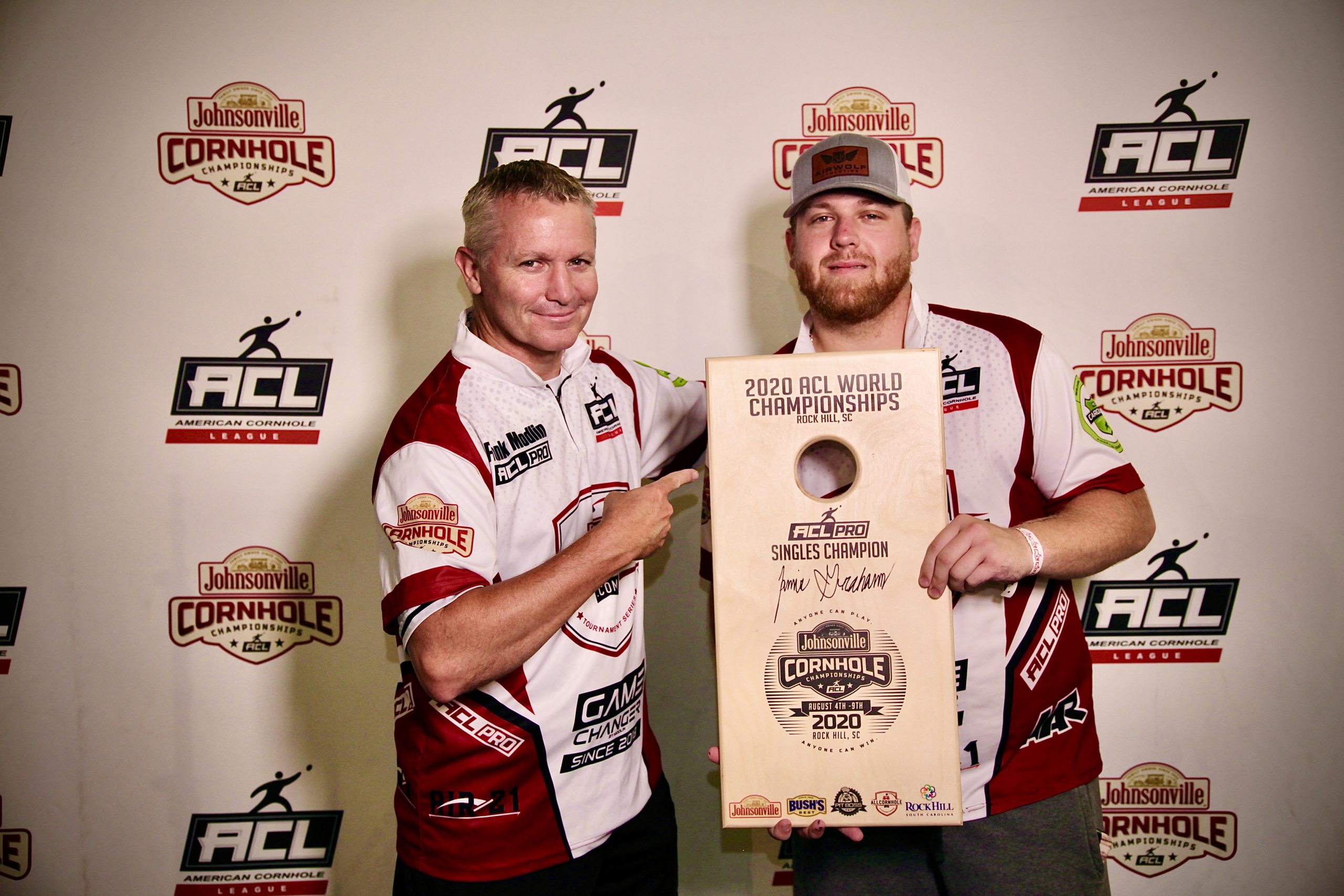While Coronavirus has sidelined some sports and left others looking like a shell of their former selves, there’s one that has soared. It’s cornhole, the beanbag game most of us know from having played in our backyards. Unlike most competitive sports, Cornhole can be played with social distancing in place, so it was able to adapt quickly and catch the attention of fans who may not have taken it seriously before.
The ACL (American Cornhole League) recently signed a 3 year deal on ESPN and the game is now one of the networks most popular sports.
At the beginning of August, the 2020 ACL World Championships here held and the prize money was no small beans. Jamie Graham was named the #1 cornhole player in the world, walking away with a whopping $22,000.
He spoke with us about the sport, the pandemic and what it takes to be #1.

Q&A with ACL World Champion, Jamie Graham
Q: How has the pandemic helped cornhole as a sport?
JG: In January we had our first national of the year in Florida. Then in March, I was on my way to a tournament in Ohio. After driving for 7 1/2 hours with 45 minutes to go, there was an announcement that due to Covid, the tournament was canceled. There were 500-600 people coming in so everyone was freaking out, trying to get money back for flights and hotels. Stacey Moore (the commissioner and founder of the American Cornhole League) came up with this idea to have 4 hour broadcasts on ESPN every weekend for a month. That started in June and with every other sport having shut down, we blew up. When people see how competitive the sport is, they catch on.

Q: What changes have been made since Covid?
JG: At the qualifiers, we had to wear a mask and stay 6 feet away from our competitors. That was a challenge because good throwers tend to get into a rhythm. I’m a rhythm player so standing on the box, waiting an extra 10 seconds to throw, was challenging for me. I had to practice waiting. In the championships, we actually got to stand by each other, but we had to wear masks. It was a little harder to breathe, but I got used to it pretty easily. Also, traveling is a big part of this game and I’ve been avoiding airplane travel, so for my second qualifier, I road tripped about 9 1/2 hours.
Q: How did you get started in the sport?
JG: I was 15 when I first started playing in the backyard. I’ve always been competitive and I didn’t have anything else to do after school. I got involved locally and after playing for about a year and a half, I entered a tournament. I got crushed. I’d never seen that type of competition before. I practiced for a year straight, went to another tournament and got 5th out of 330 players. I kept practicing and when I was 18, I won the King of Cornhole. That’s around the time I switched to the ACL and I just won the world championship.
Q: As a kid, what were your friends reactions when you told them you wanted to play competitive cornhole?
JG: I went to school and told them I had just made $500. They were like, “What??” Once I started making money, I knew my goal was to be the first player to make a living at it. It’s been 5 years since I said that and I just walked away with $22,000 from one tournament.

Q: How do you train?
JG: When I was 17 I practiced every day for 3-4 hrs a day. I played from 3:45 after school until it got dark. Last year I was in a zone where I thought I didn’t have to practice, but I was losing games I should not loose, so this season I practiced a lot. At least 2 hrs a day 4 days to keep my game up.
Get With The Cornhole Lingo
courtesy of Wikipedia
- Airmail: A bag that does not slide or bounce on the board but goes directly into the hole, usually over an opponent’s blocker bag.
- Back door, jumper Dirty Rollup: A cornhole that goes over the top of a blocker and into the hole.
- Backstop: A bag that lands past the cornhole but remains on the board creating a backboard for a slider to knock into without going off the board.
- Blocker: A bag that lands in front of the hole, blocking the hole from an opponent’s slide shot.
- Cornfusion: When players or teams cannot agree on the scoring of a given inning.
- Cornhole or Drano: A bag that falls in the hole, which is worth three points.The alternative name is a reference to a trademark, that of a sink clog clearing product.
- Cornholio: Same as grand bag or as just cornhole, depending on region; named for the alter-ego of the character Beavis in the animated TV series Beavis and Butt-Head.
- Dirty bag: A bag that is on the ground or is hanging off the board touching the ground.
- Frame: A single round or turn during which a player and opponent each throw 4 bags.
- Four bagger: A sequence of a player making all four bags in the hole during a frame. There is a tradition in some areas where any social player who puts all four bags in the hole on a single turn gets to sign the board, often with some type of ceremony and recognition.
- Flop or floppy bag: Type of toss that didn’t spin the bag horizontally or vertically. Without rotation or spin.
- Hammer: When one or more hangers (see below) are around the hole, a so-called hammer can be used. A hammer is a bag thrown as an airmail bag with a high arch in an attempt to take hanger bags into the hole with it.
- Hanger: A bag on the lip of the hole ready to drop.
- Honors: The player or team who tosses first, resulting from the team scoring last or winning the coin toss before the first frame.
- Hooker: A bag hitting the board and hooking or curving around a blocker and going in the hole.
- Jumper: A bag that strikes another bag on the board causing it to jump up into the cornhole.
- Shortbag: When a bag lands on the ground just before the cornhole board.
- Skunk, whitewash or shutout: A game that ends in a 21–0 score or, by some unofficial rules, ends in an 11–0 score.
- Slide, or slider: A bag that lands in front of the hole and slides in.
- Swish: A bag that goes directly in the hole without touching the board. More often referred to as ‘Airmail’
- Wash: When each team has scored exactly the same number of points in an inning, thereby “washing out” all points scored in the inning.
- Woody: Refers to any cornhole bag that has been pitched and remains on the cornhole board playing surface at the conclusion of the frame.

Elise Edwards
Writer/Producer
Elise began her career as a Writer/Anchor/Reporter at CNN headquarters in Atlanta, GA. She also served as Supervising Producer at E! Networks and most recently, has been busy freelance producing and writing for numerous magazines and blogs.


